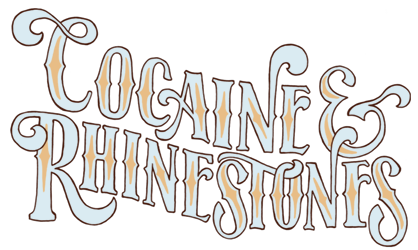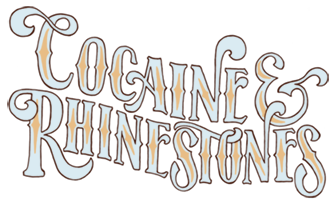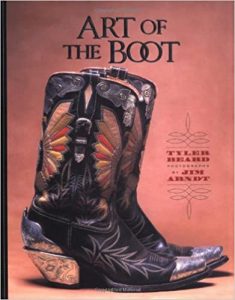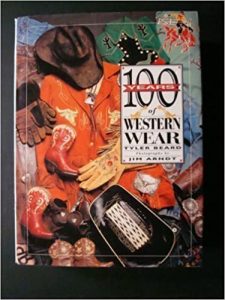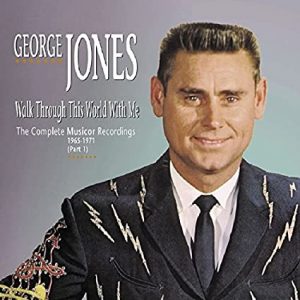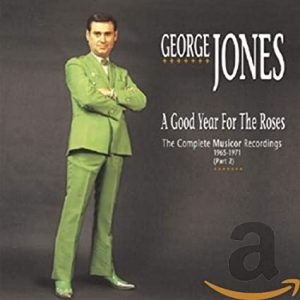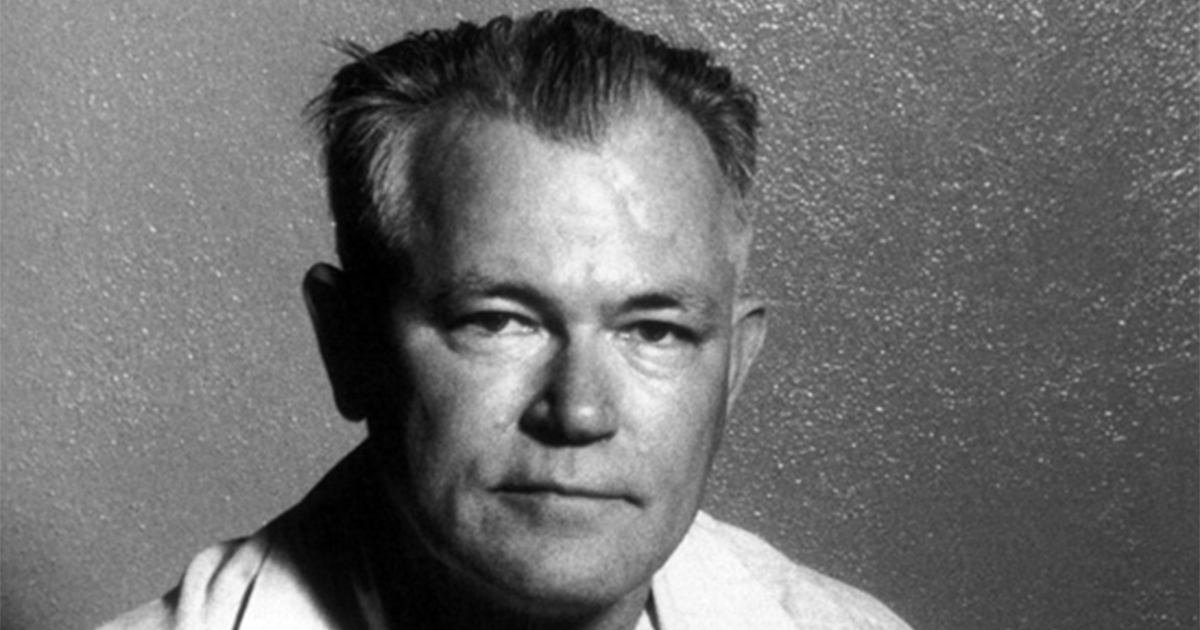
This whole story began with a pinball machine and jukebox mogul in Texas jumping over to the independent record business of the 1950s. When he hitched his wagon to a Singing Marine who became the Greatest Country Singer Ever, it served Pappy Daily well through the following decade. Then, out of nowhere, the ride suddenly ended. “What went wrong?” is the obvious question to ask, here, but it’s not the right one. We need to talk about who went wrong. The answer nearly everyone’s accepted for going on 40 years now is demonstrably untrue but we can only learn the truth through a deep dive on the country music record industry of the 1960s and by taking a look at how the careers of 2 international pop stars built a throne for The King of Broken Hearts.
Contents (Click/Tap to Scroll)
- Primary Sources – books, documentaries, etc.
- Transcript of Episode – for the readers
- Liner Notes – list of featured music, online sources, further commentary
Primary Sources
In addition to The Main Library and the Season 2 Library, these books were used for this episode:
Transcript of Episode
As part of my agreement with Simon & Schuster to publish a book adaptation of Season 2, the transcripts that have been freely available for over a year will be temporarily removed from this website. Please consider ordering a copy of Cocaine & Rhinestones: A History of George Jones and Tammy Wynette through your favorite local bookstore or requesting that your local library order a copy you can check out.
Liner Notes
Excerpted Music
This episode featured excerpts from the following songs, in this order [with links to purchase or stream where available]:
- George Jones – “Window Up Above” [Amazon / Apple Music]
- George Jones – “She Thinks I Still Care” [Amazon / Apple Music]
- George Jones – “If You Believe” [Amazon / Apple Music]
- George Jones – “Have Mercy on Me” [Amazon / Apple Music]
- George Jones – “Wedding Bells” [Amazon / Apple Music]
- Andy Williams – “Lonely Street” [Amazon / Apple Music]
- Ray Price – “Lonely Street” [Amazon / Apple Music]
- George Jones – “Lonely Street” [Amazon / Apple Music]
- Emmylou Harris – “Lonely Street” [Amazon / Apple Music]
- George Jones – “Sometimes You Just Can’t Win” [Amazon / Apple Music]
- George Jones – “Sometimes You Just Can’t Win” (re-recording) [Amazon / Apple Music]
- George Jones – “Root Beer” [Amazon / Apple Music]
- George Jones – “Not What I Had in Mind” [Amazon / Apple Music]
- George Jones – “A Girl I Used to Know” [Amazon / Apple Music]
- George Jones – “I Saw Me” [Amazon / Apple Music]
- George Jones & Melba Montgomery – “She’s My Mother” [Amazon / Apple Music]
- George Jones & Melba Montgomery – “Alabama” [Amazon / Apple Music]
- Darrell McCall – “If You Don’t Believe I Love You” [Amazon / Apple Music]
- George Jones – “There’s Gonna Be One” [Amazon / Apple Music]
- George Jones – “Stay on Board” [Amazon / Apple Music]
- George Jones – “The Likes of You” [Amazon / Apple Music]
- George Jones – “Unwanted Babies” [Amazon / Apple Music]
- Tony Pastor’s Orchestra ft. Rosemary Clooney – “At a Sidewalk Penny Arcade” [Amazon / Apple Music]
- Bobby Vee – “Rubber Ball” [Amazon / Apple Music]
- Ricky Nelson – “Hello Mary Lou” [Amazon / Apple Music]
- The Crystals – “He’s a Rebel” [Amazon / Apple Music]
- Gene Pitney – “I Wanna Love My Life Away” [Amazon / Apple Music]
- Ruth Casey – “Cry” [Amazon / Apple Music]
- Johnnie Ray – “Cry” [Amazon / Apple Music]
- LaVern Baker – “I Cried a Tear” [Amazon / Apple Music]
- The Four Seasons – “Big Man in Town” [Amazon / Apple Music]
- Gene Pitney – “Mr. Moon, Mr. Cupid and I” [Amazon / Apple Music]
- Gene Pitney – “Every Breath I Take” [Amazon / Apple Music]
- Gene Pitney – “Town without Pity” [Amazon / Apple Music]
- Gene Pitney – “(The Man Who Shot) Liberty Valence” [Amazon / Apple Music]
- Gene Pitney – “Only Love Can Break a Heart” [Amazon / Apple Music]
- Gene Pitney – “24 Hours from Tulsa” [Amazon / Apple Music]
- Gene Pitney – “24 Horas de Tulsa” [Amazon / Apple Music]
- George Jones & Gene Pitney – “I’ve Got 5 Dollars and It’s Saturday Night” [Amazon / Apple Music]
- George Jones & Gene Pitney – “I’ve Got a New Heartache” [Amazon / Apple Music]
- Melba Montgomery & Gene Pitney – “Baby Ain’t That Fine” [Amazon / Apple Music]
- Melba Montgomery & Gene Pitney – “Being Together” [Amazon / Apple Music]
- George Jones – “Things Have Gone to Pieces” [Amazon / Apple Music]
- George Jones – “Worst of Luck” [Amazon / Apple Music]
- George Jones – “I Can’t Get Used to Being Lonely” [Amazon / Apple Music]
- George Jones – “Love Bug” [Amazon / Apple Music]
- George Jones – “Least of All” [Amazon / Apple Music]
- George Jones – “Don’t Keep Me Lonely Too Long” [Amazon / Apple Music]
- George Jones – “Walk Through This World with Me” [Amazon / Apple Music]
- George Jones – “Walk Through This World with Me” (re-recorded) [Amazon / Apple Music]
- George Jones – “From Here to the Door” [Amazon / Apple Music]
- George Jones – “Your Stepping Stone” [Amazon / Apple Music]
Excerpted Video
These videos were excerpted in the episode. For any number of reasons, YouTube may remove them in the future but here they are for now:
Commentary and Remaining Sources
Okay, when I said most of the Liner Notes for the rest of Season 2 would be short, this was one of the exceptions because we’re about to be here for a while…
First, Musicor did release singles by other artists besides George Jones and Gene Pitney. The full story of the label has other interesting periods, like the final minor hits released by The Platters. But George Jones and Gene Pitney were really the label’s only sustained successes. There is one thing I think a lot of you would be interested to know about, though, and that is the time Gene Pitney was produced by Swamp Dogg. The song is called “She’s a Heartbreaker” from 1968 and it’s pretty great. They only gave Jerry Williams credit for the vocal arrangement but he said he was the true producer of the whole session and I believe him, although I don’t think he had anything to do with “Conquistador,” the terrible b-side.
Speaking of conquistadors, the intro of this episode was not about the wars, skirmishes and political machinations which led to the evolution of what we think of as the American West. The intro was about western wear, which required a few extremely simplified statements regarding the history of Mexico and the American West. I am sorry if anyone’s mad about me glossing over that stuff or the way I tried to sum it all up real fast. The history of how Texas came to be Texas, for example, is very important, very controversial and the subject of much argument. As I hope you know by now to expect from me, that’s not a can of worms I’m going to open unless I’m ready to dump out every worm in the can, which would totally derail the narrative I’m currently creating. I also happen to know the vast majority of people listening to this show are in the United States, so I tend to assume most of you already know a little or a lot about American history, at least in relation to things like how much of an influence Spain was on that history.
Many George Jones fans will be wondering why I didn’t discuss what is certainly the most offensive song in his catalog during the discussion on album filler. I honestly don’t even want to say the title of this b-side but the reason it was left out of the episode is the same as why I didn’t go in depth on the history of Texas, Mexico and the American West: unpacking the complete story would have been too complicated within the main narrative of the episode. But I will do it here. When Brett Harte wrote a poem called Plain Language from Truthful James in 1870, he intended to use the racist language of white supremacy within a satirical narrative he was certain would be understood as criticism rather than an endorsement of stereotypes and discrimination against people from China. He was heartbroken when that did not happen, his poem was taken at face value and celebrated by people who thought Harte was making fun of Chinese people with those racist stereotypes and white supremacist language. Worse, a newspaper in Boston used that white supremacist language when they republished the now-very-popular-for-all-the-wrong-reasons poem under the title The Heathen Chinee, which was soon converted into many songs in many genres by many people. When Eddie Noack worked up a country version titled “The Poor Chinee,” he did make the Chinese character the first-person protagonist and one we’re clearly supposed to sympathize with in the song. If these lyrics had nothing to do with a Chinese person, the story would be precisely the same as a hundred other songs recorded by George Jones – boy loves girl, girl cheats on boy, boy has a broken heart. But the lyrics are about a Chinese person and written in a form of pidgen which most modern listeners will hear as offensive, especially when the song gets around to kicking off its chorus with a reference to eating dog meat. And it would be a lot more comfortable to believe George Jones was aware of the original poem’s author’s satirical intent but the reality is he and most other Americans at the time probably just thought this song was funny because it comes from a time when this type of humor was perfectly acceptable in mainstream society. For example, it’s debatable whether this is more or less offensive than “Hong Kong” by The Quinns, whose singer spends a jaw-dropping amount of time delivering an entire verse in nonsense, donkey-sound syllables meant to depict a Chinese language. And maybe if someone ever explained to him how hurtful “The Poor Chinee” may be to Chinese people, George Jones would have understood and felt bad for doing it but it’s unlikely anyone ever did. The last remaining legislation outlawing interracial marriage in the United States was on the books until June of 1967, only a few months prior to this recording session. The culture which sanctioned this humor in mainstream entertainment survived well into the 1980s, as evidenced by Genesis taking “Illegal Alien” halfway up the Hot 100 with an unbelievably racist music video. And the culture which sanctioned this humor stuck around at least long enough for Tim McGraw to have a Top 10 Country Song and Top 20 Pop Song with “Indian Outlaw” in the middle of the ’90s, by which time nearly nobody remembered a George Jones recording from 1967 that was never a hit or added to his regular set list at concerts. So, yes, I will include all of this information in the Liner Notes because it matters and it is important to not whitewash history but it wasn’t placed in the main narrative because of how long I’ve been talking about it and how much this one song doesn’t have anything else to do with the story I’m telling.
For everyone playing degrees of separation throughout the season, soon after “Cry” broke Johnnie Ray into the mainstream, he started dating Dorothy Kilgallen, the famous reporter and panelist on What’s My Line? Dorothy Kilgallen was one of the specific people who would’ve made George Jones terrified to play in New York City under any normal circumstances because she, a very influential person, was always badmouthing what she derogatorily referred to as hillbilly music. In 1961, when the Grand Ole Opry took a country music package up to Carnegie Hall, Dorothy said something like everyone should get out of the city because the hillbillies were coming. In 1964, a year before Dorothy was probably murdered, possibly because of a story she was going to write about the Kennedy assassination, matador Luis Miguel Dominguín was a guest on What’s My Line?
There are about 900 ways a storyteller could use bullfighting as an allegory and I am confident in the creative choices I’ve made here. However, I do want to clarify I’m not only using it as a metaphor. Bullfighting is directly relevant to this story, a massive chunk of 20th century country music and the culture around it, which you heard more about in this episode intro and will continue to hear about in this season, just as you would any other informed history of country music.
There’s a funny little post-script to the story about Darrell McCall’s song “If You Don’t Believe I Love You Just Ask Me.” The version clipped in the episode was recorded by Darrell in 1975 and produced by Glenn Sutton, who is credited as a co-writer on the song. Now, it’s possible Glenn changed the song up a little bit from its original form – I have no idea – but it doesn’t look like Darrell ever did get that one cut without sharing the writing credit with someone. And another reason Glenn Douglass Tubb wouldn’t have wanted George Jones to record those songs of his ties into the whole “blessing and a curse” thing when it came to Jones doing one of your songs. In Nashville, there was never any secrecy over which artists had recorded the songs being pitched around town, so anything Jones was known to’ve recorded was extremely unlikely to be picked up by anyone else, since his label could just release Jones’ cut as a single if anyone else started to get traction with a version of the same song.
Although I did gather information from all over the place, my main sources on Western wear in this intro were two books by Tyler Beard, 100 Years of Western Wear and Art of the Boot. Both of these books are in what I guess you’d call a coffee table book format and both have wonderful pictures by Jim Arndt. The pictures really do matter when it comes to researching something like Western wear. I did check as much of Tyler Beard’s history by confirming it with various other sources. If you’re at all interested in Western wear, I can strongly recommend owning either or both of these books.
As mentioned in the episode, the archives at the Country Music Hall of Fame and Museum were crucial to my research process in this season. When I was invited to go down there, the first name I typed into their system to see how much data was exclusive to that room was “Melba Montgomery” and that was because of how little has been written about her life and career despite how much she matters to this story. Let’s just say there were a lot of results, which made it a lot easier to put together narratives based around the facts of figures like Melba and Pappy Daily, another important person about whom most people know nearly nothing other than what they were told by George Jones, who by that time had several reasons to package things the way he did.
You’ve seen me talk about Bear Family Records box sets a lot in the Liner Notes this season and that’s because of how useful they were to me. Jones recorded so much material while at Musicor that Bear Family had to split it up into two box sets to compile everything. (Part 1, Part 2) These sets and the accompanying booklets by Rich Kienzle were just as useful as all the other Bear Family boxes I’ve talked about. As said in the episode, there are definitely a lot of bullshit recordings in the mix but if you’re a George Jones completist or if I’m turning you into one, then there’s just a mountain of stuff I think you’ll want to hear. Even though there are who knows how many hundreds of George Jones song clips in this season, I’m not going to come anywhere near excerpting all the songs in my notes which were equally worth inclusion and discussion. I give all of Bear Family’s George Jones box sets a strong recommendation.
Not having written a book about George Jones, he hasn’t been a primary source for anything in this season but there have been a couple little things I was grateful to have him confirm and he’s one of my favorite writers on the topic of music so, while I’m talking about Bear Family Records right now, I’d like to mention Colin Escott. He’s published many book about country music and/or its intersection with rockabilly. Everything I’ve read has been great. What I’d most recommend to fans of this podcast, though, is the Dim Lights, Thick Smoke and Hillbilly Music series Colin put together for Bear Family Records. Each installment is one CD with about 27 or 28 major hits or important recordings from a certain year, packaged with a 72 page booklet containing info on the songs, artists, songwriters and other relevant history. Since there are 26 installments, spanning the years 1945 to 1970, those booklets add up to an 1,800 page book on the history of country music with a motherfucking amazing soundtrack.
Alright, that is enough talking from me for now. Come back in a couple weeks and I’ll get you as hip as it’s possible to get on the mind-blowing career of Dallas Frazier.
